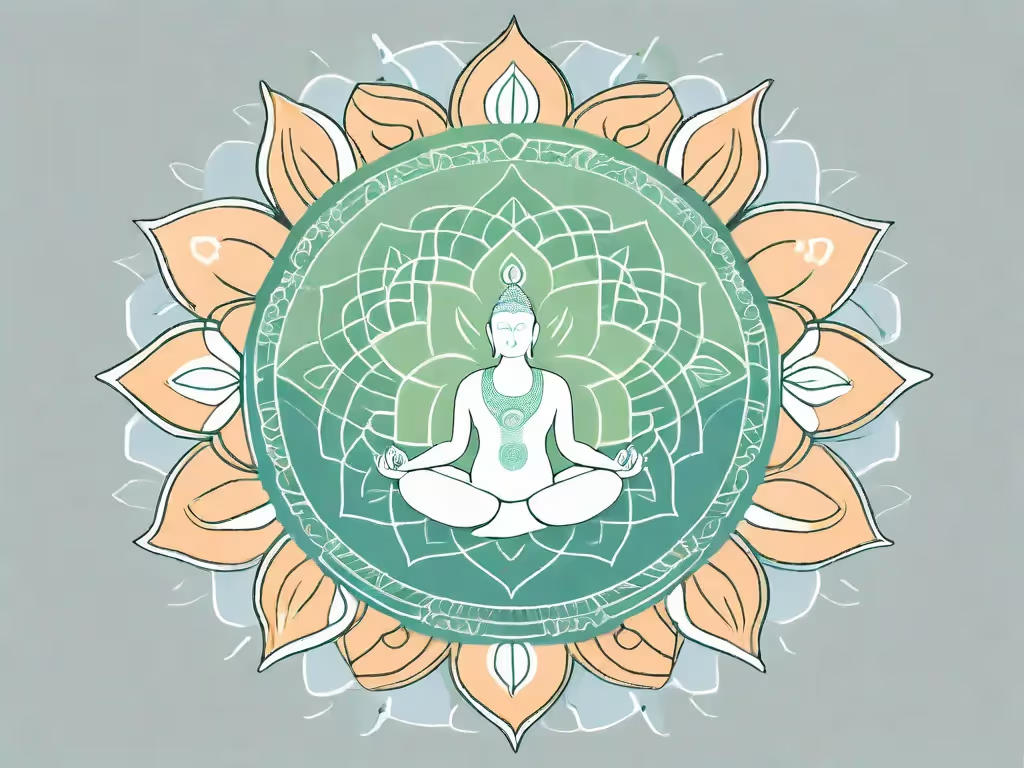When I first moved into my house, I was thrilled to start my garden. I had plans to make a zen garden in the backyard surrounded by a stone path. I planted native flowers to encourage more butterflies and bees, and even though it was all work, it was fulfilling to be surrounded by nature. I never really thought about why until I read about garden meditation sessions. What I didn't realize at the time but now approach with mindful awareness is that gardening can help you strengthen meditation because it is so similar.
Understanding Garden Meditation
What is Garden Meditation?
If you've studied mindfulness, you know that any activity can be a mindfulness practice if tackled with the right perspective and awareness. Mindfulness is simply acting and observing with compassion and presence. When you approach any activity with a mindful mindset you will find increased compassion, relaxation, and peace with what is.
“Flowers are the music of the ground from earth’s lips spoken without sound.” —Edwin Curran
Combining gardening with mindfulness practices then seems like a natural fit. Much like forest bathing, garden meditations can be nourishing simply because the practice combines the benefits of being in harmony with nature with a mindful attitude. We can find ourselves in a state of flow or meditation as we weed our yard or plant bulbs before the first freeze.
Benefits of Garden Meditation
The next time you are gardening, tap into the benefits of meditation by simply observing the tasks you are carrying out with mindful awareness. As you interact with the ground, connect to the sense of rooting your body and mind. You can also immerse yourself in the sensations around you, including the sounds of nature, such as the rustling of leaves or birdsong.
Gardening can reduce stress and promote relaxation, according to WebMD. It offers the following benefits:
- Improved mood
- Increased focus
- Increased self-esteem
- Enhanced feelings of calm
Gardening can enhance focus and presence in daily life because it teaches us how to focus on a single task and eliminate distractions that would otherwise be competing for our attention. A gardener new to mindfulness or nature meditation may find it easier than someone who has never gardened.
Creating Your Garden of Meditation
Choosing the Right Space
If you have a lot of space, a little space, or no outdoor space, you can still enjoy the benefits of gardening meditation. All you need is a quiet and peaceful location and something to grow and nurture.
Consider choosing plants based on your space limitations and the plant's unique needs. If you live somewhere that is not friendly to many plants due to the dry or hot environment, you could also create a zen garden, which is a stone, gravel, or sand landscape that can offer similar benefits of calm and joy by providing a lovely atmosphere and a harmonious shape. Zen gardens are often nurtured through the raking of sand or gravel to create wave-like or circular shapes to evoke calm.
When engaging in gardening or zen gardening, you can find harmony with nature by focusing on the simple task, meditating on the repetition and connection with the elements.
Designing for Mindfulness
Whether you have a dry, Zen garden, or a lush garden full of plants, you can get creative with the space to make it the most peaceful and supportive. Many gardeners will incorporate elements like ponds or other water features. They will focus on plants and flowers that stimulate the senses. For instance, lavender creates a sense of calm through its aroma, whereas peppermint will boost focus and clarity.
You can also incorporate benches or decorative chairs so that you have a place to take a seat and meditate at the beginning or end of your gardening practice. When considering your meditation space, the more harmonious and comfortable you make it, the easier it will be for you to dive into a mindful state.
Practicing Meditation in the Garden
Mindful Gardening Techniques
Focusing on the sensory experiences of gardening is the best way to engage with gardening meditation. You can do so by taking slow, deliberate movements, and focusing on the sensations of the movements you made and interacting with your environment. You can sit in a guided meditation or listen to the wind chimes or birdsong around you. You can feel the texture of the earth, and you can notice the smells and overall sensations to get to the most mindful state.
Integrating Meditation Practices
Starting with breathing exercises before gardening can help you to come to the present. Slow, deep breaths will support you when reflecting on your thoughts and emotions while tending to plants with more mindfulness. One of the best breathing practices is to inhale to a count of three, hold to a count of four, and then exhale to a count of five. This is a relaxing breath practice that makes it easier for many to get into a meditative state.
Maintaining Your Garden Meditation Practice
Setting a Routine
You can use gardening as a regular relaxation practice. Begin by allocating specific times for meditation in the garden. For me, dusk and dawn are the best times to be outside because the world is still quiet, but I can hear the subtle sounds and find peace in the transition from night to day or day to night.
When picking the right time of day, you have to be practical and think about when your mental energy might need the boost of calm the most. Many people I know like to be in nature or work in the garden after work to unwind and relax after enduring stress.
Regularly assessing and adjusting your garden time and routine for optimal mindfulness will reveal shifts in your needs based on your lifestyle, location, season, location, and your mental state.
Building a Community of Practice
Gardening can be a very social and community-building activity. This brings even more benefits, as you can find new friendships and connections by hosting group gardening meditation sessions or mindful garden walks. If you join a gardening group, you can rotate locations or visit community gardens to find space and time for communal meditation and mindful appreciation.
Meditating doesn't have to be a solo activity. Meditation circles are incredibly powerful. To get a boost on your meditation journey in the garden and beyond, join me at the Aura Health App.



.webp)







.avif)

%20(1).avif)


.avif)
.avif)
.webp)


.avif)


















































































































.avif)

















.svg)









